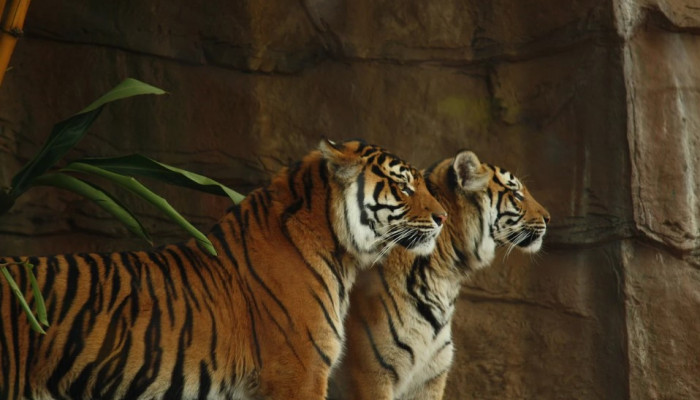16 nations to join international big cat alliance
- In Reports
- 06:26 PM, Mar 01, 2024
- Myind Staff
According to officials from the Environment Ministry 16 countries including Brazil, Nepal, Bangladesh, and Malaysia, have officially become members of the newly formed International Big Cat Alliance (IBCA), spearheaded by India.
Additionally, nine international organizations, such as the International Union for Conservation of Nature (IUCN) and the World Wildlife Fund (WWF) International, have consented to join the alliance.
The Union Cabinet, chaired by Prime Minister Narendra Modi, has approved the establishment of the IBCA, with its headquarters located in India. This initiative aims to launch 'Big Cat Diplomacy' and promote a green economy.
The initiative aims to protect and conserve seven major big cat species, including tigers, lions, leopards, jaguars, pumas, snow leopards, and cheetahs. India has pledged ₹150 crore as one-time budgetary support over five years, starting from 2023-24 to 2027-28.
Environment Minister Bhupender Yadav confirmed that 16 countries have already agreed to join the International Big Cat Alliance (IBCA) during discussions with reporters. Additionally, officials at the Environment Ministry anticipate more countries will join the alliance in the near future.
"We've secured consent from 16 nations and 9 international organizations for the alliance," he stated. The alliance focuses on conserving seven big cat species: Tigers, Lions, Leopards, Snow Leopards, Pumas, Jaguars, and Cheetahs, with five of these species found in India. It's a multi-country, multi-agency coalition aimed at enhancing conservation efforts.
The member countries include Armenia, Bangladesh, Bhutan, Brazil, Cambodia, Egypt, Ethiopia, Ecuador, Kenya, Malaysia, Mongolia, Nepal, Nigeria, Peru, Suriname, and Uganda.
Nine international organizations have given their consent to join the alliance, including IUCN, Science and Conservation International Snow Leopard Trust, Global Tiger Forum, FAO, HE Zurab Pololikashvii, Secretary General of UNWTO, The Amur Tiger Centre, WWF International, World Customs Organization, and Midori Paxtor, Director Nature Hub Bureau for Policy and Programme Support at UNDP.
The environment ministry stated that the IBCA will adopt a multifaceted approach aimed at establishing extensive linkages and broadening engagement across various domains. It will facilitate knowledge sharing, capacity building, networking, advocacy, financial and resource support, research, technical assistance, education, and awareness.
The governance structure of IBCA includes an assembly of members, a standing committee, and a secretariat headquartered in India. An environment official noted that the agreement's framework, modeled largely after the International Solar Alliance (ISA), is being finalized by the International Steering Committee (ISC). The Alliance aims to ensure the sustainable utilization of natural resources and address challenges arising from climate change.
According to the ministry, IBCA plays a crucial role in safeguarding big cats and their habitats, thereby promoting natural climate adaptation, water and food security, and the welfare of communities dependent on these ecosystems. The ministry emphasized that IBCA fosters cooperation among countries for mutual benefit and significantly advances the long-term conservation agenda.
Image source: NDTV







Comments